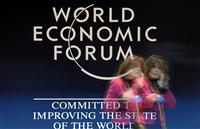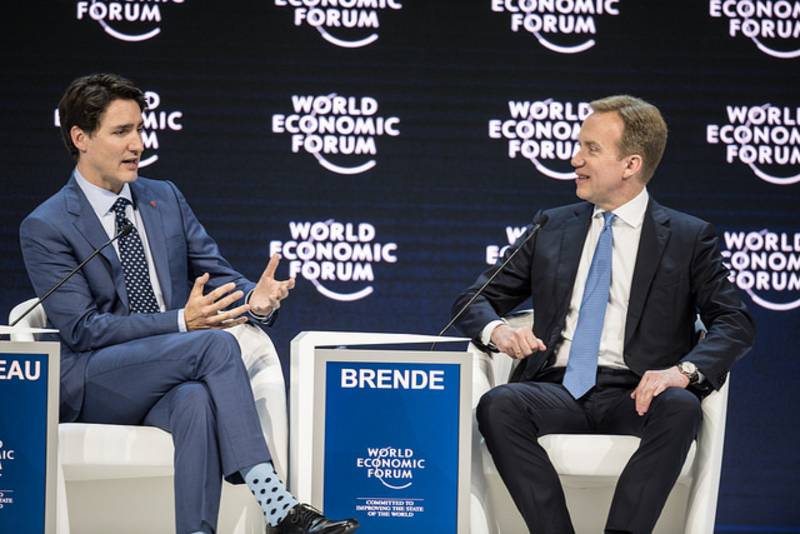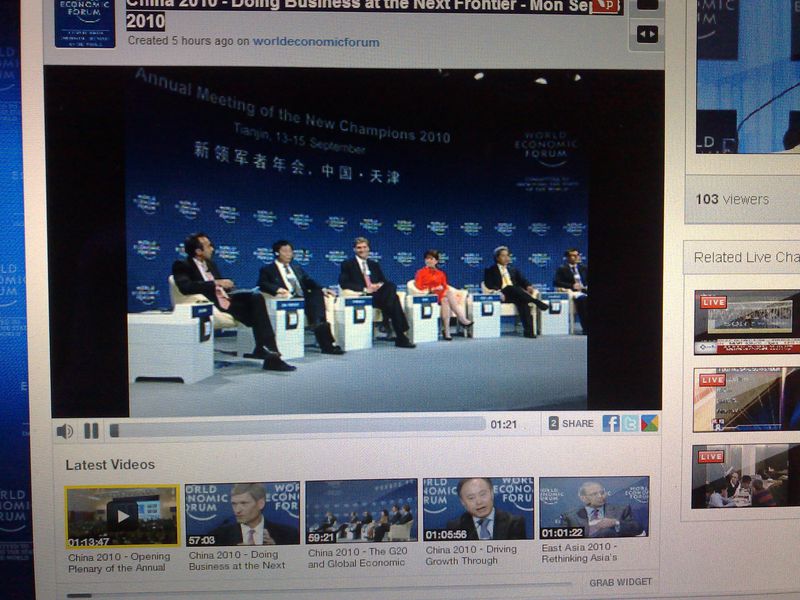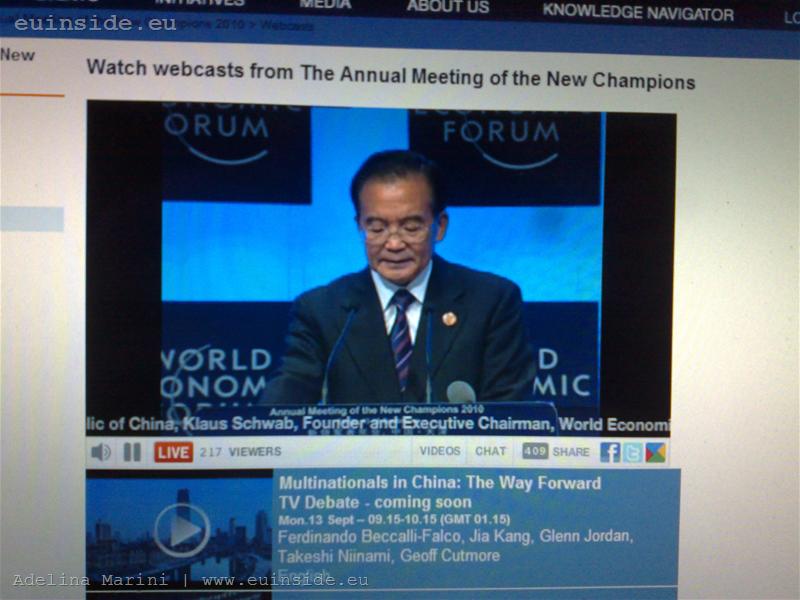Davos: rethink, redesign and rebuild
euinside, January 27, 2010
 A year and a half after the beginning of the global financial and economic crisis the Swiss ski resort Davos will again be hosting political and economic leaders from around the world. Their main target will be to improve the state of the world but this time with the participation of all stakeholders from business, government, the media, science, religion, the arts and civil society. 2010 is also the year of the 40-th anniversary of the World Economic Form founded by Klaus Schwab. The motto this year is Rethink, Redesign, Rebuild.
A year and a half after the beginning of the global financial and economic crisis the Swiss ski resort Davos will again be hosting political and economic leaders from around the world. Their main target will be to improve the state of the world but this time with the participation of all stakeholders from business, government, the media, science, religion, the arts and civil society. 2010 is also the year of the 40-th anniversary of the World Economic Form founded by Klaus Schwab. The motto this year is Rethink, Redesign, Rebuild.
Driving the rethink at the 40th Annual Meeting will be the Network of Global Agenda Councils comprised of over 1,000 experts active in over 70 Councils created to advance solutions to the most critical challenges facing the world.
The change of design is actually a dialogue that is being held for a long time on the adaptation of the structures and systems for international cooperation. A step in this direction was the shifting from G7 to G20 - the forum of the world's most developed nations and the participation of the fastest developing countries like China, India, Brazil, Saudi Arabia.
To restore confidence a collaborative platform that integrates Web 2.0 technology, will enable leaders to build knowledge, share insights and reach out to key stakeholders as an online community throughout the year.
It is expected the other key issue at the 5-day forum to be organising of additional assistance for Haiti after the devastating earthquake and the strong aftershocks which ruined almost the whole island country - one of the poorest in the world.
Haiti after the devastating earthquake and the strong aftershocks which ruined almost the whole island country - one of the poorest in the world.
Officially the forum will be opened with a speech by the French president Nicolas Sarkozy. Unlike last year's Davos, this year the mood will be much better and the participation of bankers and financial experts will be much more visible. The reason is that in more and more parts of the world the statistics shows out-of-recession trends and a slow but stable economic growth. An interesting fact is that these data are the result of no measures for increase of financial supervision and regulation as the world called in the beginning of the crisis, especially the leaders of the G20.
Not less interesting would be the reaction of the business toward 2 quite important news that came from the US recently. The first is the new project of president Barack Obama to increase supervision over the financial institutions in the US and, the second is the decision of the American Supreme Court to allow lobbyists to support pre-election campaigns of the candidates for president and for members of Congress.
Quite curious would be the behaviour of the EU in Davos 2 months after the Lisbon Treaty entered into force. It is expected the international financial institutions' representatives to renew their warnings that the signals for recovery could be only temporary and that the crisis has only retreated a bit but is far from over, as the forecast of the World Bank shows.
 Obviously, in an attempt to keep its purpose of an international forum that gathers together politicians and representatives of the large business, another key topic in the next 5 days will be climate change, especially after the controversial results of the UN climate change conference in Copenhagen in December.
Obviously, in an attempt to keep its purpose of an international forum that gathers together politicians and representatives of the large business, another key topic in the next 5 days will be climate change, especially after the controversial results of the UN climate change conference in Copenhagen in December.
euinside will try to give you the essence of what is happening in Davos.
 Justine Trudeau | © WEF
Justine Trudeau | © WEF | © euinside
| © euinside | © euinside
| © euinside